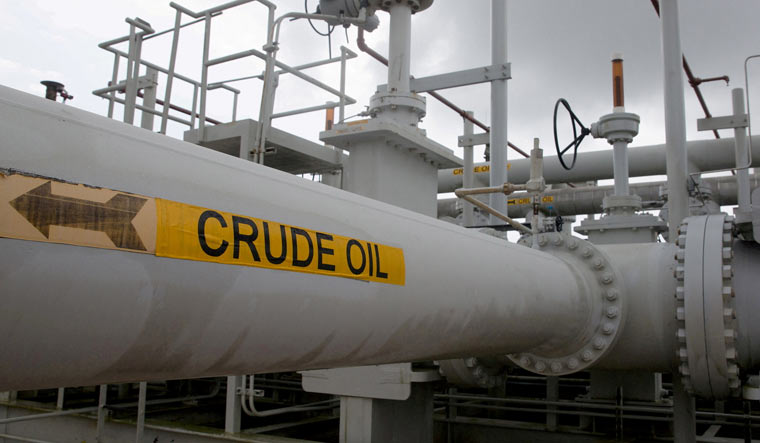For the first time in 140 days, petrol and diesel prices were raised in the country by 80 paise. It was in November when the country saw the last fuel price hike. The domestic cooking gas (LPG) is also set to be costlier by Rs 50.
As predicted by experts with the geopolitical situation around an increase in petrol and diesel prices was expected as oil marketing companies (OMC) were burdened by higher international oil prices, which they were unable to pass on to users due to Assembly elections in five states. At the global level crude oil prices had risen by USD 3 last week following an almost 40 per cent surge in the previous three days.
“Due to non price increase the margins of OMC's had suffered. Now that prices have begun to rise, the government is negotiating with Iran and Russia for 25-30 percent cheaper crude, which might help OMCs cut their losses and raise margins,” said Kshitij Purohit, Lead of Commodities and Currencies, CapitalVia Global Research Limited.
Experts point out that the US natural gas futures might witness some profit booking amid hopes of de-escalation, rising output, and forecasts for milder weather ahead. Ukrainian President Volodymyr Zelenskyy had said that Ukraine is prepared to discuss a commitment not to seek NATO membership in exchange for an end to fighting with Russia, which might dent sentiments.
Demand for US LNG (Liquefied natural gas) exports remains high amid Russia’s invasion of Ukraine and Europe’s rush to fill up storage. However, de-escalation in the war might put downward pressure on prices, and the heating demand is declining.
“Crude oil is poised to move higher as the European Union debates the possible ban of Russian petroleum imports as they gather this week with the US President Joe Biden for a series of summits designed to harden another round of sanctions on Moscow. Tensions in the Middle East remain elevated and Saudi Arabia warned of supply disruption unless western allies do more to help counter attacks from Iranian-backed Yemeni rebels on its energy infrastructure. Last month, OPEC plus missed its production target by more than 1 million barrels per day as an already tight market brace for major Russian disruption. Rising geopolitical tensions in Europe and the Middle East coupled with production cuts from Russia in an already tight market amid demand recovery might push the prices higher. Having said that, crude prices have rallied more than 45 per cent year to date and we don’t deny chances of a profit-booking in case of de-escalation in tensions. Iran nuclear talks which have been halted for now can also be tracked closely, which might bring forth almost 1.3 million barrels per day to global supply,” pointed out Naveen Mathur, Director, Commodities and Currencies, Anand Rathi Shares and Stock Brokers.
As per a recent report by Motilal Oswal, the current geopolitical crisis involving Russia, the second largest exporter of oil and the largest exporter of gas, has resulted in Brent skyrocketing to USD 140 per barrel a few days back before settling down to USD 110 per barrel at present. The report points out that it would not be possible to replace the Russian oil and gas production in the short term. The report observes that substantial incremental production from elsewhere such as Iran,Venezuela, OPEC and the US may be slow over the next 2-3 years.
In the meantime, the continued crisis may keep oil prices elevated for longer. As per the report it has raised the Brent crude oil price to US$ 80-75 per barrel from US $ 70 to 65 per barrel for the FY 2023-24. The report says that the spike in international gas prices would also lead to high domestic gas prices beyond April 2023. The report also says that due to the dominant position of Russia in the global oil and gas landscape, it is not possible to substitute the large proportion of Russian oil and gas, not even in the next two to three years.





